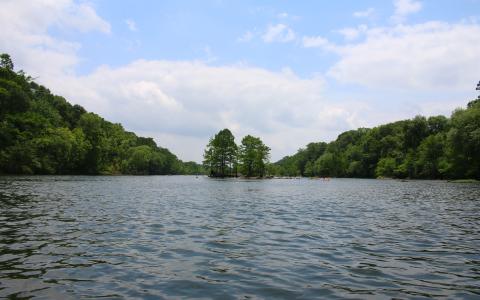
Hochatown, Oklahoma, once a tranquil community of 219 residents, has undergone a dramatic transformation, evolving into a bustling Airbnb hotspot. This scenic town, nestled near Broken Bow Lake and a three-hour drive from Dallas, has seen its Airbnb listings skyrocket from around 400 to a staggering 2,400 in recent years.
This remarkable growth has brought significant economic changes to Hochatown, necessitating upgrades in infrastructure from roads to sewer systems. However, the influx of short-term rentals has also introduced challenges. One investor, lured by the prospect of profit, expressed disappointment in the returns on his rental property.
The town's Airbnb proliferation has generated considerable tax revenue, with $456,000 collected in September alone, and local officials are optimistic about reaching $1 million monthly in the future.
Yet, Hochatown faces pressing needs, including the lack of professional firefighters, police officers, and garbage collectors, along with issues like unpaved roads and unreliable water infrastructure — critical for maintaining amenities like hot tubs that attract guests.
As property prices soared, some cabin owners who bought at peak rates are now concerned about insufficient bookings to justify their investments, indicative of the "Airbnbust" phenomenon. This occurs when an oversupply of rental properties exceeds demand, impacting owners' profits.
Jay Carney, Airbnb's Director of Communications, highlighted to the New York Times the significant economic benefits Airbnb brings to remote locations like Hochatown, noting the positive impact of tourism dispersal to areas without traditional hotels.
Hochatown's Airbnb boom, initially dampened by the pandemic, surged as travel resumed, with occupancy rates hitting 95%. This growth spurred a successful campaign to incorporate the town in November.
However, this gold rush-like scenario is not unique to Hochatown. Nationwide, investor enthusiasm has led to market saturation in some regions. Airbnb reported a 19% increase in property supply from 2022 to 2023, outstripping the 14% rise in traveler demand.
The impact of this imbalance is evident in property value fluctuations. For instance, a cabin named "California Dreaming" in Hochatown, initially sold for $590,000 in 2020, escalated to $1.1 million in 2021, and peaked at $1.299 million in 2022. However, its value has since declined, currently listed at $899,000.
Dallas resident Leo Winegar's experience mirrors this trend. Winegar, who purchased land in Hochatown in late 2021 inspired by fond childhood memories, is now facing uncertainties in recouping his investment. After being laid off from his tech job, Winegar is juggling night shifts at Costco and launching a handyman business, hoping to avoid selling his cabin.
Hochatown's transformation into an Airbnb-dominated town exemplifies the broader trend and challenges of the short-term rental market, balancing economic growth with the sustainability of local communities and the financial realities of investors.



